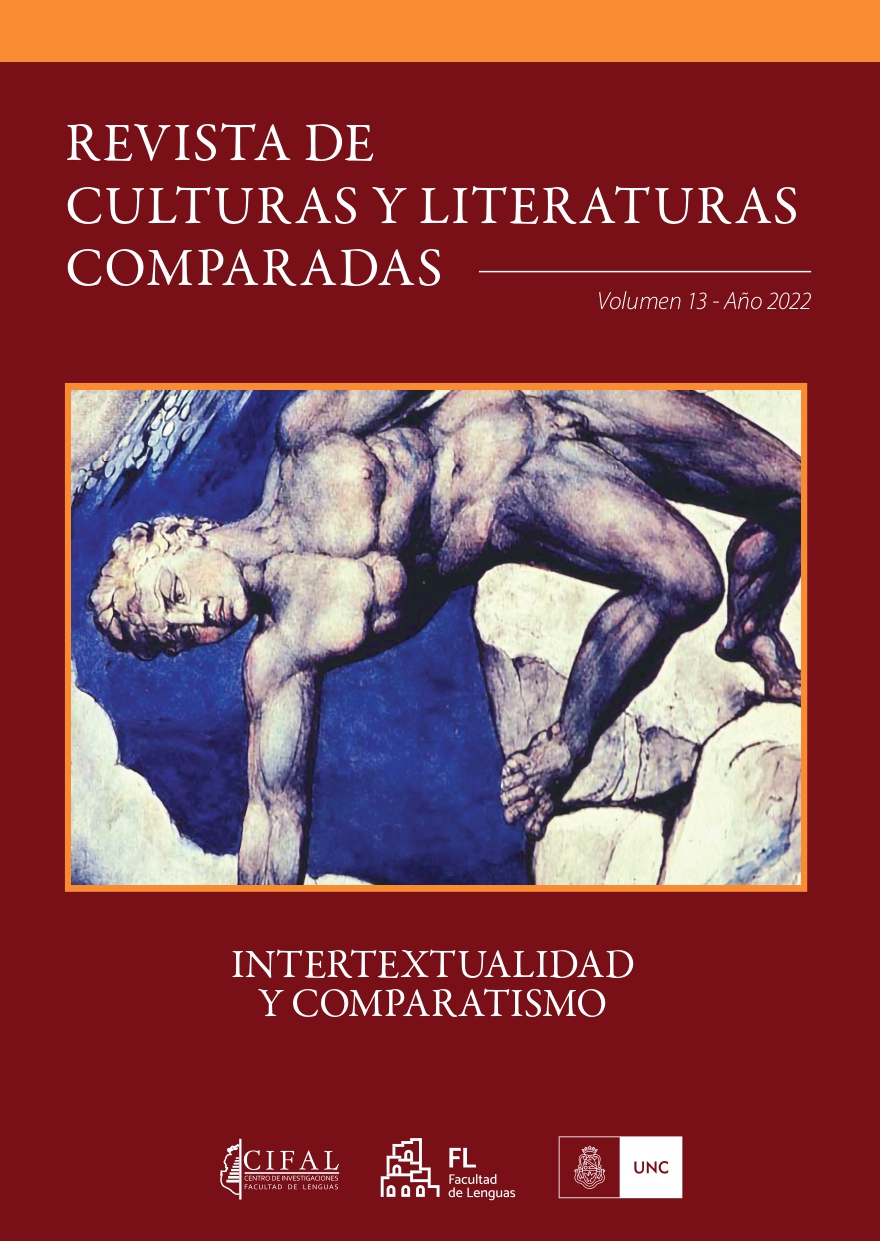Faust and Facundo, tragedy and identity
Keywords:
Sarmiento, Goethe, Facundo, Fausto, Berman, modernity, tragedy, identity, developmentAbstract
Throughout the article, it is shown how some of the theoretical approaches that Marshall Berman wields in his book All that is Solid Melts into Air (1982), to analyze Faust (1808 and 1832), by Johann Wolfgang von Goethe, enrich the reading of Facundo (1845), by Domingo Faustino Sarmiento. Above all, because these approaches allow deepening and expanding interpretations already disclosed about this last book by various authors such as Roberto Gonzalez Echevarria, Noe Jitrik, Silvia Molloy and others. These theoretical scopes refer to the dialectical character of modernity and, therefore, to the high price that must be paid to achieve it; hence Berman speaks of the tragedy of modernity; likewise, they allude to the traits that make up the identity of the hero of modern times, and, finally, they show how this hero embodies a colossal development project that is carried out from a center of power and is sustained by industry, commerce, technology, financial investment, and legal and political transformation. In this sense, the article also uses, as an interpretative tool for analyzing Facundo, the notion of self-fashioning coined by Stephen Greenblatt.
Downloads
References
Alberdi, Juan Bautista. “Carta Tercera”. Obras completas de J. B. Alberdi. Tomo IV. Buenos Aires: La Tribuna Nacional, 1886. 50-74.
Berman, Marshall. Todo lo sólido se desvanece en el aire. La experiencia de la modernidad. México, D.F.: Siglo XXI, 2011.
Cortés Conde, Roberto. “Sarmiento and Economic Progress: From Facundo to the Presidency”. Sarmiento. Author of a Nation. Eds. Tulio Halperín Donghi, Iván Jaksic, Gwen Kirkpatrick, Francine Masiello. Berkeley and Los Angeles: University of California Press, 1994. 114-123.
Dalfré, Liz Andréa. “Diagnóstico de Domingo Faustino Sarmiento sobre o Império Brasileiro em 1842”. Oficina do Historiador 7/1 (2014): 177-194. Web. 20 de ago. de 2021.
Eckermann, Johann Peter. Conversaciones con Goethe. Barcelona: Iberia, 1982.
Errázuriz Cruz, Rebeca. “El viaje latinoamericano y el deseo de modernidad: Una lectura de los Viajes de Domingo Faustino Sarmiento (1845-1847)”. Tesis de maestría U de Chile, 2009. Repositorio académico de la Universidad de Chile. Web. 15 de mar. de 2021.
González Echevarría, Roberto. (2003). Facundo: An Introduction. Facundo: Civilization and Barbarism. Translated from the Spanish by Kathleen Ross. Berkeley, Los Angeles, London: University of California Press, 2003. 1-15.
---. Mito y archivo. Una teoría de la narrativa latinoamericana. México, D.F.: Fondo de Cultura Económica, 2000.
Greenblatt, Stephen. Renaissance self-fashioning. From More to Shakespeare. Chicago: The University of Chicago Press, 1980.
Guevara, Celia. “La utopía sarmientina”. VI Jornadas de Sociología. Buenos Aires: Universidad de Buenos Aires, 2004. Web. 5 de ago. de 2021.
Halperín Donghi, Tulio. Proyecto y construcción de una nación. Caracas: Fundación Biblioteca de Ayacucho. 1980.
Jitrik, Noé. “El Facundo: La gran riqueza de la pobreza”. Facundo o Civilización y barbarie. Barcelona: Fundación Biblioteca de Ayacucho, 1985, IX-LII.
Meglioli, Rogelio. “El pensamiento filosófico de Domingo Faustino Sarmiento”. Tesis de doctorado U. Complutense de Madrid, 2019. Repositorio de la UCM. Web. 23 de abr. de 2021.
Molloy, Silvia. “The Unquiet Self: Mnemonic Strategies in Sarmiento’s Autobiographies”. Sarmiento. Author of a Nation. Eds. Tulio Halperín Donghi, Iván Jaksic, Gwen Kirkpatrick, Francine Masiello. Berkeley and Los Angeles: University of California Press, 1994. 193-212.
Nugent, Guillermo. El laberinto de la choledad. Lima: Fundación Friedrich Ebert, 1992.
Ramos, Julio. “Saber del otro: escritura y oralidad en el Facundo de Domingo Faustino Sarmiento”. Desencuentros de la modernidad en América Latina. Literatura y política en el siglo XIX. Caracas: Fundación Editorial El perro y la rana, 2009. 65-89.
Sarmiento, Domingo Faustino. Recuerdos de provincia. Caracas: Fundación Biblioteca Ayacucho, 1991.
---. Facundo o Civilización y Barbarie. Barcelona: Fundación Biblioteca Ayacucho, 1985.
Villavicencio, Susana. “Republicanismo y americanismo: Sarmiento y la nación cívica”. Anales 7-8 (2004-2005): 171-190. Web. 20 de jun. de 2021.
von Goethe, Johann Wolfgang. Fausto. Madrid: Ediciones Cátedra, 2009.
Downloads
Published
Issue
Section
License

This work is licensed under a Creative Commons Attribution-NonCommercial-NoDerivatives 4.0 International License.
Aquellos/as autores/as que tengan publicaciones con esta revista, aceptan los términos siguientes:
a) Los/as autores/as conservarán sus derechos de autor y garantizarán a la revista el derecho de primera publicación de su obra, el cual estará simultáneamente sujeto a la Licencia de reconocimiento de Creative Commons.
b) La cesión de derechos no exclusivos implica que la publicación de los artículos en la presente revista no quita la posibilidad o el derecho al autor/a de publicar su obra de manera posterior en otras revistas u órganos editoriales y la autorización por parte de los/as autores/as para que el trabajo sea depositado en los repositorios institucionales, tales como el Portal de Revistas de la Universidad Nacional de Córdoba.



